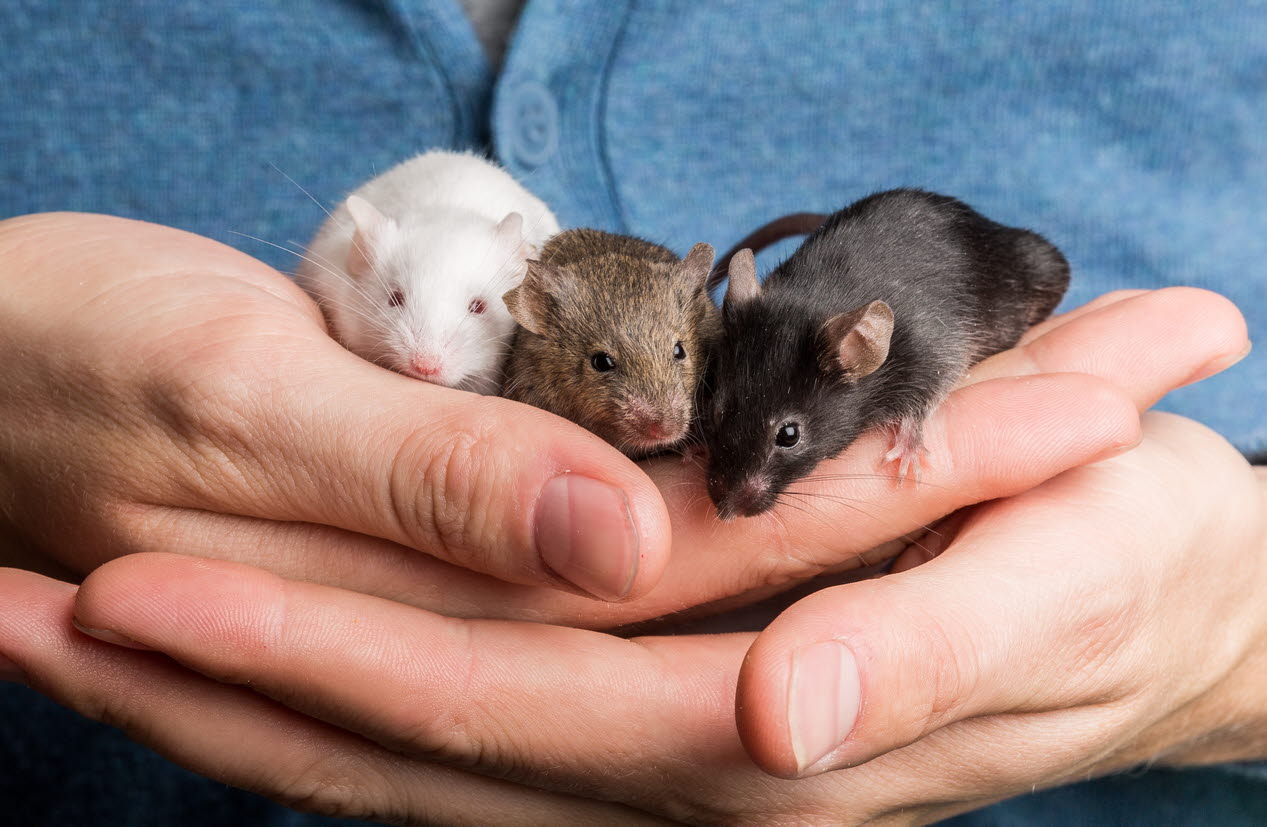Common health issues in pet mice

Mice can make fantastic pets, and whilst they are a relatively easy pet to keep, there are some important points to remember to ensure your pet mice stay happy and healthy.
When purchasing your new pet, remember that mice are very social animals, so keeping two mice together, such as two female littermates, or two male littermates will ensure they benefit from having company.
Mice are prolific breeders, so if you have a male and a female mouse kept together they will very likely breed unless you have the male mouse sterilised. If two male mice are kept together they can sometimes display aggressive behaviour towards each other, which can also be rectified by having both male mice sterilised.
Mice enclosures
Now you have pet mice, find a veterinarian who has experience treating rodents, as they will be able to assist with confirming the gender of young mice, providing further advice on health and husbandry requirements, and sterilising the mice if necessary. Implementing good husbandry practices is vital to prevent diseases and health problems in your mice. The mouse enclosure should be made of secure material that the mice cannot chew through, and having multiple levels is beneficial for encouraging normal mouse behaviour.
Ammonia is produced in mouse urine and mice are sensitive to high ammonia levels in the air, which can cause respiratory infections. So the enclosure should be regularly cleaned to remove soiled substrate or bedding, and an absorbent substrate such as recycled paper kitten litter works well.
Other types of substrate such as sawdust should be avoided as they can contribute to respiratory problems in mice. You should also provide nesting materials such as shredded paper and dried grass, together with multiple shelters, boxes and toys for enrichment –as mice are curious and love exploring.
What to feed pet mice
Fresh water should always be available, and mice are particularly susceptible to warm temperatures in excess of 30⁰C, when they can suffer from heat exhaustion which can be fatal. During hot weather, it’s important to keep your mice in a cool part of the house, provide plenty of water along with fruit and vegetable treats, and you can also add in a frozen water bottle for the mice to keep themselves cool near.
Feeding a commercial mouse pellet or mix is recommended, as mice fed only on seeds can suffer from nutritional deficiencies which can affect their health. Other food treats such as fruit, vegetables, pasta and rice should only be fed in small quantities to avoid gastrointestinal problems.
If you notice changes in behaviour
Part of the attraction of keeping mice as pets, is that they can be easily handled and are irresistible to watch as they explore and move around their enclosure. In keeping a close eye on your pet, it’s important to seek veterinary attention for your mice if you notice any changes to their normally active behaviour.
This also includes if they stop eating or drinking, lose weight or have areas of hair-loss, have diarrhoea or any discharge from their eyes or nose, if they display weakness in their limbs, or if they have abnormal breathing, dirty teeth, are scratching or if you notice any lumps or bumps.
Any of these signs can signify that your mouse may be unwell, so seek expert veterinary advice as soon as possible. It’s also a good idea to organise a regular annual health check of your mice with your vet, to ensure that you are doing everything possible to keep your small pet happy and healthy.
